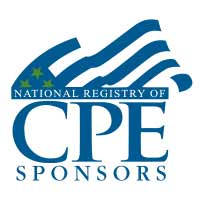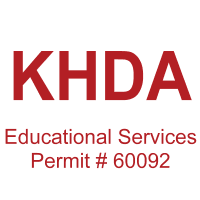
An Intensive 5-day Training Course
Measurement Uncertainty in Testing ISO-IEC 17025
- Format: Classroom
- Duration: 5 days
- Language: English
- Accredited: CPE, KHDA Certified training courses
INTRODUCTION
Laboratories have a professional obligation to provide accurate and reliable analytical results to customers. The Laboratory will justify the customer’s trust by providing the correct answer to the analytical part of the problem, in other words, results that have demonstrable ‘fitness for purpose’. Analytical method validation is one of the measure universally recognized by laboratory as a necessity for a comprehensive system of quality assurance.
This EuroMaTech training course will focus on the latest techniques and standards developed to measure the uncertainty of the data. The Guideline for Uncertainty Measurement (GUM) will be introduced in a simple way. Every effort is made in this course to eliminate unnecessary complications, to apply the GUM at its simplest level and to take away apparent mystery. Participants who have never drawn up uncertainty budgets before usually develop the required skill well before the end of the course. Others who seek explanations of GUM complexities obtain clarifications expressed in simple terms. Measurement uncertainty problems are solved by brainstorming methods so as to generate interaction by all participants.
Participants attending the Measurement Uncertainty in Testing ISO-IEC 17025 training course will develop the following competencies:
- Practical, understandable and common way of measurement uncertainty calculations, mainly based on already existing quality control and validation data,
- Basic knowledge in the use of quality control and statistics is required
- Learn the need for uncertainty estimates and the concept involved in calculation of uncertainty measurement
- Understand and practice on the uncertainties covering general statistics, distributions, confidence levels, standard deviation, etc.; the scope and field applications; the uncertainty and its sources and components; the analytical measurement, the process of uncertainty estimation and measurement specification; the uncertainty sources and quality uncertainty (GUM)
TRAINING OBJECTIVES
This Measurement Uncertainty in Testing ISO-IEC 17025 training course aims to enable participants to achieve the following objectives:
- Apply systematic techniques on best practices of measurement uncertainty in chemical testing laboratories
- Identify the need for uncertainty estimates and discuss the concept involved in calculation of uncertainty measurement
- Measure uncertainty calculation in a practical and pragmatic manner, define measurement processes and identify the sources of measurement errors
- Select appropriate error distribution, use different methods to evaluate measurement uncertainty and recognize other user-friendly material
- Calibrate interpolated graph using external/internal standards
- Estimate uncertainties covering general statistics, distributions, confidence levels, standard deviation, etc.
- Determine the scope and field applications as well as define uncertainty and discuss its sources and components
- Carryout analytical measurement, the process of uncertainty estimation and measurement specification
- Identify uncertainty sources and quality uncertainty (GUM)
- Quantify uncertainty and calculate the combined uncertainty
- Report uncertainty and employ statistical process control (SPC) and method of validation
WHO SHOULD ATTEND?
This Measurement Uncertainty in Testing ISO-IEC 17025 training course covers systematic techniques and methodologies on best practice of measurement uncertainty
- chemical testing laboratories for laboratory managers,
- superintendents, supervisors,
- Scientists, doctors, physicians, chemists, researchers, analysts, and other technical staff.
- R&D and government statutory employees and QA/QC employees

TRAINING METHODOLOGY
The Measurement Uncertainty in Testing ISO-IEC 17025 training course will combine presentations with interactive practical exercises, supported by video materials, activities and case studies.
TRAINING SUMMARY
This Measurement Uncertainty in Testing ISO-IEC 17025 training course will give you an overview of the methodologies followed by the Guide of Uncertainty Measurements (GUM) and the requirements of the ISO 17025. It covers an overview of chemistry fundamentals and the general chemistry of elements and compounds most common to a steam generating system.
TRAINING OUTLINE
PROGRAMME OUTLINE
Day 1 - Estimating Uncertainties
- The Need for Uncertainty Estimates
- Concept Involved in Calculation of Uncertainty Measurement
- Calculation Measuring Uncertainty in Practical & Pragmatic Manner
- Defining Measurement Processes
- Identifying Sources of Measurement Errors
- Selecting Appropriate Error Distribution
- Using Different Methods to Evaluate Measurement Uncertainty
- Other More User-Friendly Material
- Interpolated Graph Calibration Using External/Internal Standards
- General Statistics
- Distributions
- Confidence Levels
- Standard Deviation
- Random
- Systematic Sources
- Type A & Type B Methods
- Applying Corrections
- Outside Limit Estimates
- How Many Measurements?
- Combination of Uncertainties
- Correlated vs Uncorrelated
- Expanded Uncertainty
Day 2 - Analytical Measurement and Uncertainty
- Analytical Measurement and Uncertainty
- Method Validation
- Conduct of Experimental Studies of Method Performance Traceability
- The Process of Measurement Uncertainty Estimation
- Specification of the Measurand
Day 3 - Identifying Uncertainty Sources
- Quantifying Uncertainty (GUM)
- Uncertainty Evaluation Procedure
- Evaluation of Uncertainty for Empirical Methods
- Quantification of Individual Components
- Experimental Estimation of Individual Uncertainty Contributions
- Calculating the Combined Uncertainty
Day 4 - Reporting Uncertainty
- Reporting Standard Uncertainty
- Reporting Expanded Uncertainty
- Numerical Expression of Results
Statistical Process Control (SPC)
- The Measurement Process Model
- Setting Up the Statistics
- Evaluating the Process
- Setting Control Limits
- Using Control Limits
- Practical Considerations
Day 5 - Method of Validation
- Setting Validation Criteria that will satisfy the Needs of Customers
- Accuracy by the Analysis of a CRM
- Precision/Repeatability
- Working Range, Linearity
- Calibration Uncertainties
- Limit of Detection (LOD) and Quantitation (LOQ) Calibration Sensitivity
- Precision/Ruggedness, Robustness
- Analysis of QC Samples
- Analysis of CRM’s
- Reproducibility Studies Like Proficiency Testing and Interlaboratory Studies
CALL ME BACK
Do you wish for us to conduct this course at your premises?
Discover In-House Solutions
ACCREDITATION

EuroMaTech is registered with the National Association of State Boards of Accountancy (NASBA) as a sponsor of continuing professional education on the National Registry of CPE Sponsors. State boards of accountancy have final authority on the acceptance of individual courses for CPE credit.

Euromatech is a Knowledge & Human Development Authority (KHDA) approved training institute in Dubai, licensed and approved to deliver training courses in the UAE.
The KHDA is the regulatory authority in the UAE, that oversees administering, approving, supervising, and controlling the activities of various education providers in the UAE. We are proud of our commitment to ensuring quality training courses and status as a KHDA-approved training provider.
Taught by our team of highly qualified trainers, our KHDA approved training courses will provide you with an enriching learning experience and practical knowledge that will help you future-proof your career and support professional development within your organisation.

